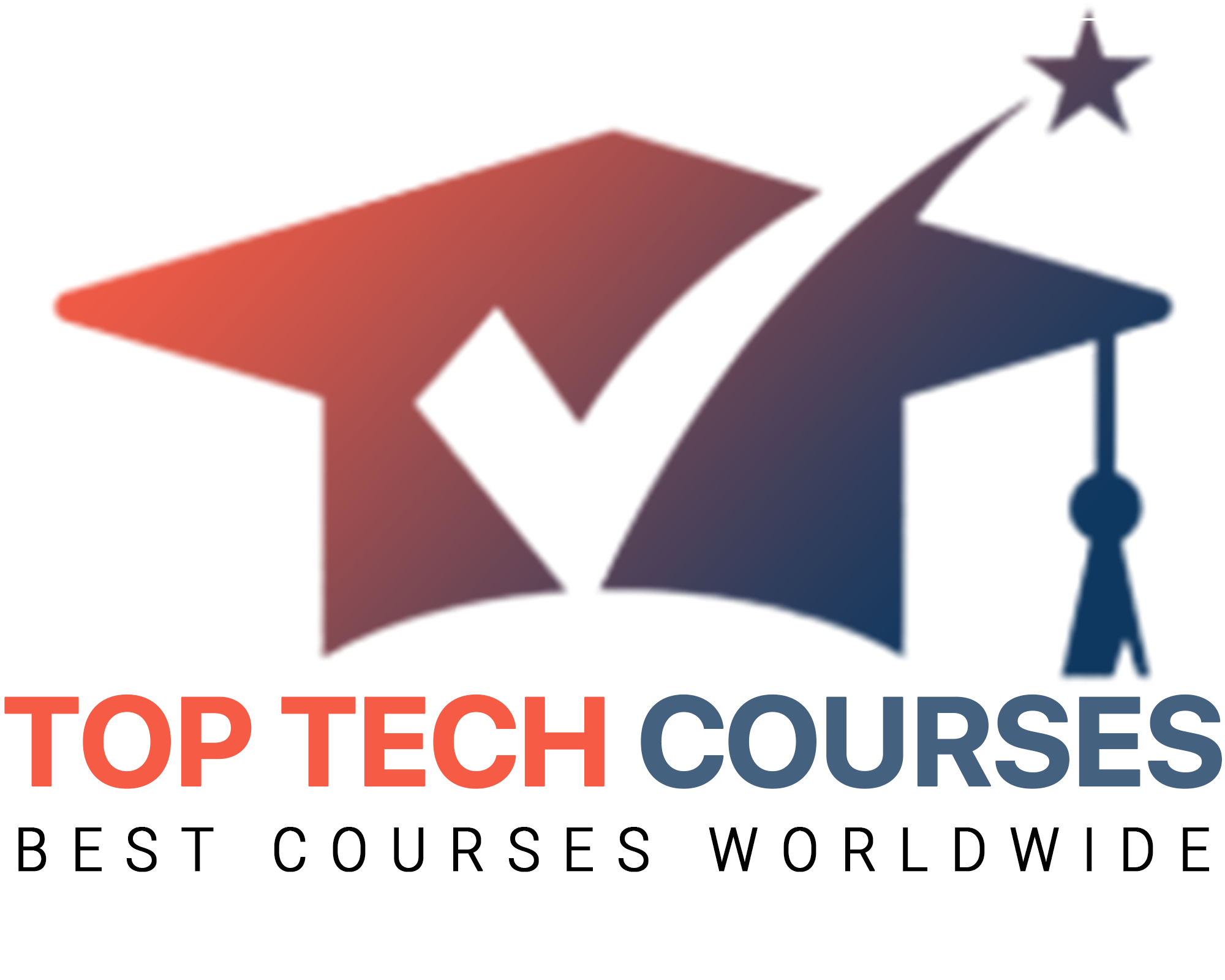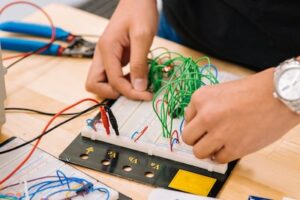
Empowering Growth: Overhauling Lifes Potential through Flexible Learning
In a world that is constantly evolving, embracing opportunities for personal growth is essential to navigate the ever-changing landscape. But what if traditional education and rigid learning structures are holding us back from unlocking our true potential? Enter flexible learning, a groundbreaking approach that empowers individuals to take control of their own growth journey.
In this thought-provoking article, we delve into the transformative power of flexible learning and how we have the potential to revolutionize our understanding of personal development. From online courses to customizable learning plans, empowering personal growth through flexibility becomes the driving force behind this educational paradigm shift.
Gone are the days of standardized curricula and rigid schedules. Instead, learners can now curate their own educational experiences, fostering curiosity, adaptability, and creativity.
This shift not only allows for a more tailored learning experience but also prepares individuals for the dynamic challenges of the modern world. Whether it’s exploring a new career path, honing specific skills, or simply expanding one’s horizons, empowering personal growth through flexible learning enables lifelong learning beyond the confines of traditional educational institutions.
Join us as we embark on a fascinating journey into the world of flexible learning and discover how it can overhaul life’s potential, transforming us into the masters of our own destinies. Brace yourselves for an enlightening exploration of Empowering Growth: Overhauling Life’s Potential through Flexible Learning.
Table of Contents
Introduction: Unlocking the Power of Flexibility
By embracing flexible learning, individuals can break free from the constraints of traditional education systems and pave their unique paths towards personal development. This method allows learners to take control of their education, customizing it to meet their specific needs, circumstances, and aspirations.
Through the utilization of online courses, distance learning programs, flexible schedules, and adaptive learning platforms, students and professionals can acquire knowledge and skills that are relevant to their ever-evolving fields of interest. This approach not only enhances their professional growth but also contributes to their overall personal development.
Furthermore, flexible learning fosters a mindset of lifelong learning, encouraging individuals to constantly seek new opportunities for growth, adapt to changing environments, and embrace new challenges. By empowering individuals to chart their learning journeys, flexible learning stands as a powerful tool for nurturing continuous growth and success in the rapidly changing world of today.
Advantages of Flexible Learning
Flexible learning offers a revolutionary approach to education. It allows individuals to customize their learning experiences based on their goals, preferences, and availability. This empowers learners to take control of their education and design a curriculum that meets their unique needs. Online courses have gained popularity because they provide valuable resources, interaction with instructors, and collaboration with peers, all at the learner’s own pace and convenience. The flexibility of these courses allows individuals to balance personal and professional commitments while making progress towards their goals. Additionally, flexible learning promotes lifelong learning as a crucial element for personal development. By encouraging individuals to continue acquiring knowledge and skills throughout their lives, flexible learning equips them to adapt to changing environments and succeed in their careers. Lifelong learners are not limited by age or conventional barriers; instead, they constantly seek opportunities to expand their horizons. This mindset of continuous growth enhances critical thinking and fosters creativity. Through flexible learning, individuals have the chance to embark on a lifelong journey of self-improvement, ensuring relevance and success in an ever-evolving world.
Strategies for Incorporating Flexible Learning in Your Life
Embracing flexible learning unlocks hidden talents, skills, and knowledge, allowing us to reach new heights of personal and professional development. Traditional education systems often have rigid structures that limit growth and exploration. However, flexible learning lets us customize our learning experiences, focusing on areas that align with our passions and goals. Whether through online courses, microcredentials, or blended learning approaches, we have the power to reshape potential and expand our horizons. Overhauling potential goes hand in hand with lifelong learning. Personal development is ongoing throughout our lives, not confined to a specific period. With rapid advancements in various industries, staying relevant and adaptable is crucial. By embracing flexible learning, we can continuously acquire new skills, stay up-to-date with trends, and remain competitive in the ever-changing job market. Lifelong learning allows us to explore new interests, reinvent ourselves, and seize opportunities that align with our passions. Embracing this mindset transforms potential from static to fluid, empowering us to adapt, thrive, and achieve lifelong success.
Lifelong Learning: A Key Element for Personal Development
Lifelong learning is an ongoing process that allows individuals to gain knowledge, skills, and experiences throughout their lives. Unlike traditional education, which is limited to specific periods, lifelong learning can be pursued at any age or stage of life. It empowers individuals to stay relevant in a rapidly changing world, improve job prospects, and enhance personal lives.
One advantage of lifelong learning is the ability to adapt to new technologies, trends, and challenges. In today’s fast-paced and competitive world, knowledge becomes outdated quickly, and skills become obsolete. Lifelong learning helps individuals stay up-to-date with the latest advancements and acquire new skills to meet emerging needs. It encourages a growth mindset and a desire for knowledge, allowing individuals to stay curious, open-minded, and adaptable to change.
Lifelong learning also enriches personal and intellectual satisfaction by offering opportunities for self-discovery, expression, and personal growth beyond formal education. It provides a platform for individuals to explore their interests, pursue their passions, and expand their horizons. Whether it’s learning a new language, picking up a musical instrument, or studying a new subject, lifelong learning allows individuals to continuously challenge themselves and find fulfillment outside of their professional lives. It opens doors to new experiences, perspectives, and opportunities for personal development throughout one’s lifetime.
Embracing Change: How Flexible Learning Leads to Lifelong Success
Flexible learning helps individuals develop and upgrade their skills, making them more adaptable and versatile in the workforce. By embracing flexible learning, individuals can explore new paths and take on new challenges, unlocking their full potential. Learning on one’s own terms and at one’s own pace encourages self-motivation and ownership over one’s educational journey. This leads to lifelong success as individuals acquire the necessary tools to navigate professional and personal endeavors. In a fast-paced, constantly evolving world, flexible learning is crucial for nurturing lifelong success. It broadens knowledge, helps acquire new skills, and promotes personal growth. It also allows individuals to pursue passions, explore various subjects, and adapt to new technologies. Flexible learning fosters an open mindset, independence, and self-directed learning, which are essential traits for lifelong success. By harnessing the power of flexible learning, individuals ensure continual growth, empowerment, and the ability to thrive in an ever-changing global landscape.
articly.ai tagvoicedrop.ai tag
Top Tech Courses: Your Path to Success in the World of Technology and Programming
In the fast-paced world of technology, staying ahead of the game is crucial. That’s where Top Tech Courses comes in.
As a leading online marketplace for tech and programming courses in Spanish, they offer over 10,000 courses that cater to all skill levels. Whether you’re a beginner looking to dip your toes into web development or an experienced professional seeking to sharpen your cybersecurity skills, Top Tech Courses has got you covered.
With their team of expert instructors, you can rest assured that you’re learning from the best in the industry.But the benefits don’t stop there.
Top Tech Courses understands the importance of recognition and offers industry-recognized certificates upon completion of their training programs. This not only validates your newly acquired skills but also boosts your career prospects in the competitive tech world.
Adopting a flexible learning approach, Top Tech Courses allows you to study at your own pace and fit your education around your existing commitments. Whether you’re a full-time employee or a busy parent, their courses are designed to accommodate your busy schedule.
So why wait? Invest in your future today with Top Tech Courses. Acquire valuable skills, advance your career, and embark on a lifelong journey of learning and development.
The possibilities are limitless, and with Top Tech Courses, you’re set for success in the ever-evolving world of technology and programming.
Frequently Asked Questions
Flexible learning is an educational approach that allows learners to have control over when, where, and how they learn. It provides increased freedom in terms of time, pace, and location of learning.
Flexible learning offers numerous benefits, such as personalized learning paths, increased accessibility for diverse learners, improved work-life balance, and the ability to learn at one’s own pace.
Flexible learning benefits individuals of all ages and backgrounds. It is particularly advantageous for working professionals, parents, individuals with disabilities, or those residing in remote areas.
Flexible learning empowers individuals by providing them with the opportunity to take charge of their education. It fosters growth by allowing learners to develop skills, knowledge, and personal competencies aligned with their interests and goals.
Examples of flexible learning methods include online courses, blended learning programs, self-paced learning modules, microlearning activities, and competency-based education.
Flexible learning can be equally effective or even more effective than traditional classroom learning. It allows for personalized instruction, continuous engagement, and tailored learning experiences, which can enhance retention and achievement.
Institutions can support flexible learning by offering online courses, investing in digital resources and technologies, providing flexible schedules and learning options, and training instructors to effectively deliver online or blended courses.
Some challenges in implementing flexible learning include technology limitations, learner motivation and discipline, ensuring quality and accreditation standards, and addressing the need for social interaction and peer collaboration.
Flexible learning is considered a key component of the future of education. Its potential for personalized learning, accessibility, and adaptability to evolving needs makes it a crucial approach in meeting the demands of a rapidly changing world.
In Short
As our world evolves at an ever-accelerating pace, the need for adaptable, lifelong learning has become undeniable. Gone are the days when a static education provided all the tools necessary for success.
In this era, flexibility is the key to unlocking the doors of continuous development.Flexible learning allows individuals to tailor their educational journey to their specific needs and circumstances.
Whether it’s balancing work and family commitments or harnessing the power of technology to bridge geographic barriers, the opportunities are boundless. No longer constrained by rigid schedules or one-size-fits-all curricula, learners have the freedom to explore their passions, delve into new areas of knowledge, and cultivate invaluable skills at their own rhythm.
This transformative approach to education has revolutionized the way we approach lifelong learning. It acknowledges the diverse learning styles, interests, and aspirations of individuals, fostering a sense of empowerment and autonomy.
By harnessing the latest advancements in technology, online platforms have democratized education, making it accessible to anyone with an internet connection. From remote villages to bustling metropolises, the potential for growth and development knows no bounds.
Yet, as our educational landscape undergoes this remarkable shift, challenges and concerns emerge. The digital divide threatens to exacerbate educational inequality, leaving behind those without access to technology.
The burden of self-motivation and self-discipline can overwhelm some learners, making it crucial to provide support systems and resources to ensure success. The perpetual waves of information can inundate individuals, leading to overwhelm and uncertainty about what knowledge to prioritize and trust.
Amidst these complexities, however, lies the incredible promise of flexible learning. The potential to tap into the wealth of information and expertise from around the globe, to connect with like-minded individuals, and engage in collaborative learning is unprecedented.
It fuels a spirit of lifelong curiosity and discovery, nurturing a society that values continuous growth and adaptability.In conclusion, the concept of flexible learning for lifelong development holds immense potential.
It opens doors to personal enrichment, career advancement, and societal progress. With the right support and infrastructure in place, we can embrace the ever-changing landscape of education, transforming it into a dynamic catalyst for individual and collective flourishing.
The journey towards lifelong learning may be erratic and perplexing, but its rewards are simply incredible.








